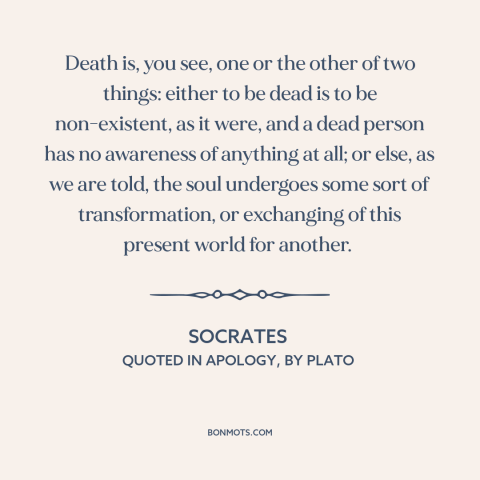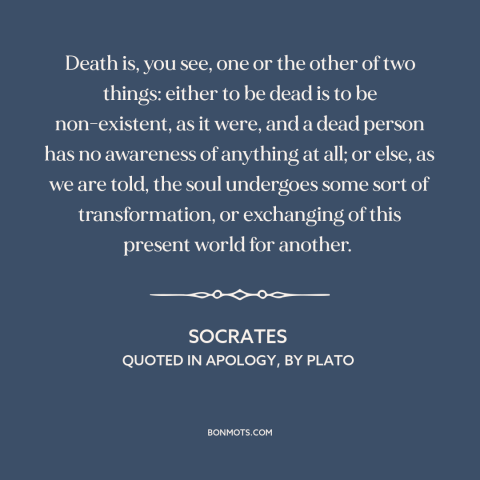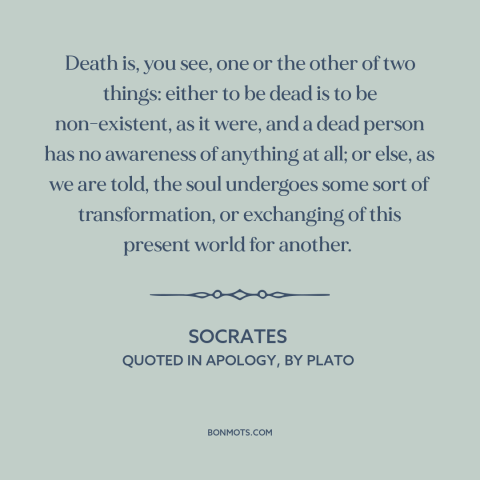Death is, you see, one or the other of two things: either to be dead is to be non-existent, as it were, and a dead person has no awareness of anything at all; or else, as we are told, the soul undergoes some sort of transformation, or exchanging of this present world for another.
Authentication Score 2
Original Citation
Plato. Ἀπολογία Σωκράτους [Apology of Socrates]. Speech of legal self-defence which Socrates spoke at his trial for impiety and corruption. 399 BC, Athens, Greece.
Current Citation
Plato. "Apology." Plato: Euthyphro; Apology; Crito; Phaedo, translated by Christopher Emlyn-Jones and William Preddy. Harvard University Press, 2017.



